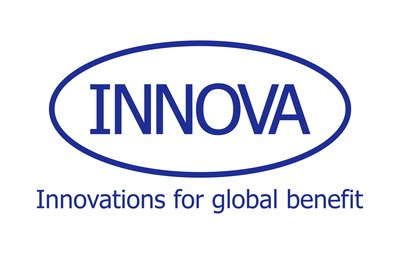– Liverpool is to headquarter the Pandemic Institute, which will provide the world’s first unique and comprehensive capability to predict, prevent, respond to and recover from Future Pandemics
– Innova has provided the capital required to establish the Institute, alongside support from the Liverpool City Council, The University of Liverpool, Liverpool John Moores University, the Liverpool School of Tropical Medicine and KQ Liverpool.
PASADENA, Calif. and LIVERPOOL, England, Sept. 13, 2021 /PRNewswire/ — Innova Medical Group, a global health innovator and the world’s largest provider of rapid antigen tests, has announced a £10 million donation for the launch of The Pandemic Institute, a global centre of excellence to help the world prevent, prepare, and respond more effectively to future pandemics. The Institute is headquartered in Knowledge Quarter Liverpool (KQ Liverpool).

Innova’s donation provides the startup capital required to establish the Institute, alongside support from the Liverpool City Council, The University of Liverpool, Liverpool John Moores University, the Liverpool School of Tropical Medicine, and KQ Liverpool.
The facility will offer world-leading clinical, research, and policy expertise, based in what is soon to be designated one of the world’s healthiest buildings, The Spine. That expertise will be supported by one of Liverpool’s greatest assets – its considerable academic resources – along with global connections and affiliates and public and private sector partners.
Together, the Institute’s partners will translate research results into policy and tangible actions, providing a unique holistic approach and comprehensive end-to-end capabilities across the pandemic lifecycle. The result will allow the world to accelerate global response to future pandemic events, to unify global intelligence and to dramatically increase the impact of pandemic research on the global society.

“The Innova team is passionate about supporting projects that will make a difference and it is clear now that pandemics are one of the biggest threats to the health of the world’s population,” said Daniel Elliott, CEO and President of Innova Medical Group. “It’s a really exciting initiative for us to be supporting the City’s academic and business institutions with an ambition towards end-to-end solutions that can be applied on a global scale. We look forward to working collaboratively with the Institute’s existing and future partners in pursuit of that combined goal.”
“The Pandemic Institute will be a unique centre of excellence which has the potential to help revolutionise how the world responds to future pandemics,” said Professor Matthew Baylis, Director of the Pandemic Institute. “Liverpool is perfectly placed for this exciting initiative and we appreciate Innova’s leadership in establishing the Pandemic Institute and the generous gift to Liverpool.”
ABOUT INNOVA MEDICAL GROUP, INC:
Innova Medical Group is a global health screening and diagnostic innovator driven to dramatically improve health outcomes worldwide with equitable, high-value testing solutions. Our strategic and iterative approach enables us to create, build and deploy a myriad of accessible tests customized to meet and empower the user at their point of need. With a panoramic vision spanning the present to the future, we develop trusted solutions that are both intuitive and secure to use. We quickly and nimbly became the world’s largest provider of Covid-19 tests, and we are determined to execute on this model across infectious disease, other chronic conditions and wellness. For more information, please visit: www.innovamedgroup.com
Photo – https://mma.prnewswire.com/
Logo – https://mma.prnewswire.com/
